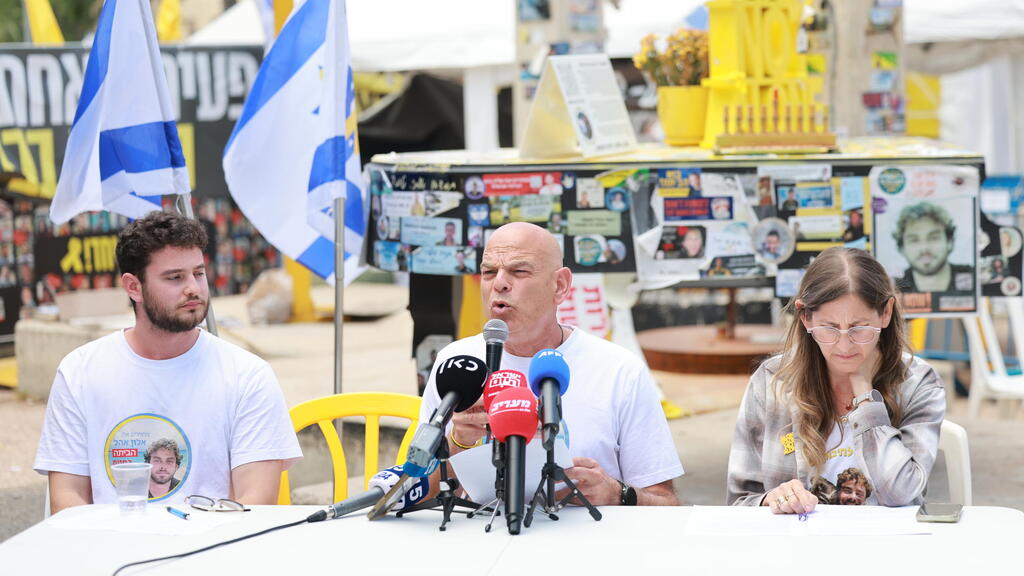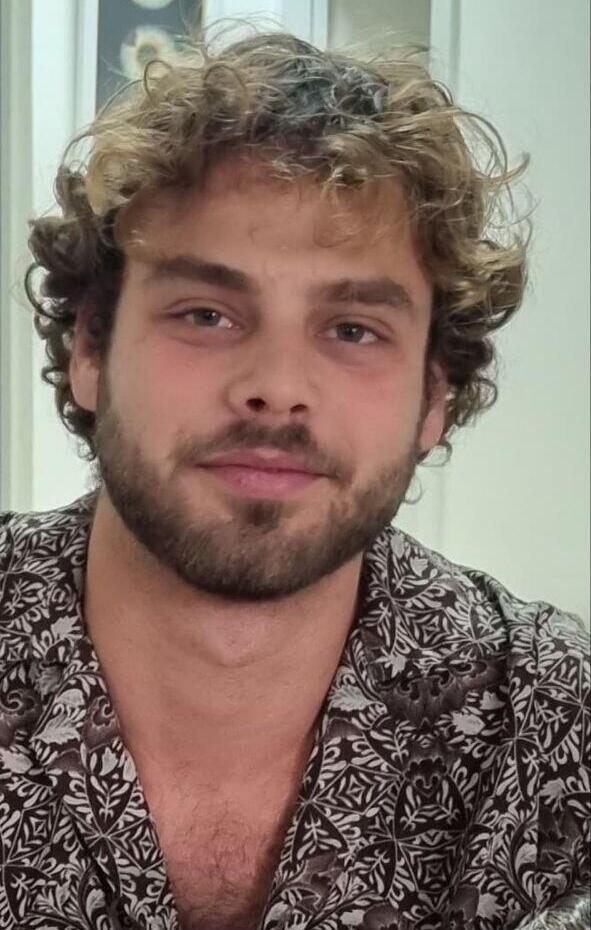Getting your Trinity Audio player ready...
The family of Israeli hostage Alon Ohel revealed new details Monday about his condition in captivity and presented a humanitarian proposal aimed at securing the release of wounded captives.
Speaking at Hostages Square in Tel Aviv, the family detailed their proposal — calling for the evacuation of injured hostages to a neutral country for treatment.
The initiative has been submitted to Prime Minister Benjamin Netanyahu's close associates, military officials involved in negotiations, Israel's hostage envoy Gal Hirsch and Shin Bet representatives. It was also delivered to senior U.S. envoys Adam Boehler and Steve Witkoff, who reportedly responded positively.
Alon’s father, Kobi Ohel, said Alon has lost sight in one eye and might still be able to save the other. He added that Alon suffered a severe head injury and has shrapnel wounds throughout his body. These details were based on testimonies from former hostages, including Eliya Cohen, who was held captive alongside with him.
“He was kidnapped from the 'Shelter of Death', injured by grenade blasts and brutally beaten with rifle butts,” Kobi said. “Hamas gave him disgraceful medical care — a 19-year-old boy stitched his wounds with a needle and thread, without anesthesia. After that, he was given only acetaminophen while his body was full of shrapnel.”
Since February 8, when former hostages Eli Sharabi, Or Levy and Cohen provided testimony, the family has been living with the knowledge that Alon remains wounded, abused, starved and chained.
Get the Ynetnews app on your smartphone: Google Play: https://bit.ly/4eJ37pE | Apple App Store: https://bit.ly/3ZL7iNv
Kobi Alon criticized the international response, saying: “Countries are sending humanitarian aid to Gaza and Hamas while injured hostages are left untreated. What international law allows this? Gaza is violating every rule and the world stays silent.”
He stressed that negotiations remain deadlocked and that humanitarian aid could be used as leverage. “Our plan offers a chance to evacuate the wounded for life-saving medical care outside Gaza, without releasing them yet,” he explained. The proposal suggests moving injured hostages to an agreed-upon hospital — American or European — in one of the Gulf states.
Humanitarian aid to Gaza would resume during the treatment period. A full hostage release deal would be completed once the wounded are transferred to neutral ground. Kobi noted that similar precedents exist, referencing the 1980s Jibril Agreement, when prisoners were transferred through Geneva.
Alon's mother, Idit, added: “It’s unbearable to imagine my son being treated by an untrained teenager. I can’t sleep knowing he’s gravely wounded and receiving no real medical care. International law is meaningless if aid continues to flow to Gaza while hostages are dying.”
His younger brother, Ronen, said: “We sit here as an incomplete family. The hardest part is not knowing when we’ll be whole again. We believe there’s a way to bring Alon and all the hostages home — alive — to heal and rehabilitate.”




